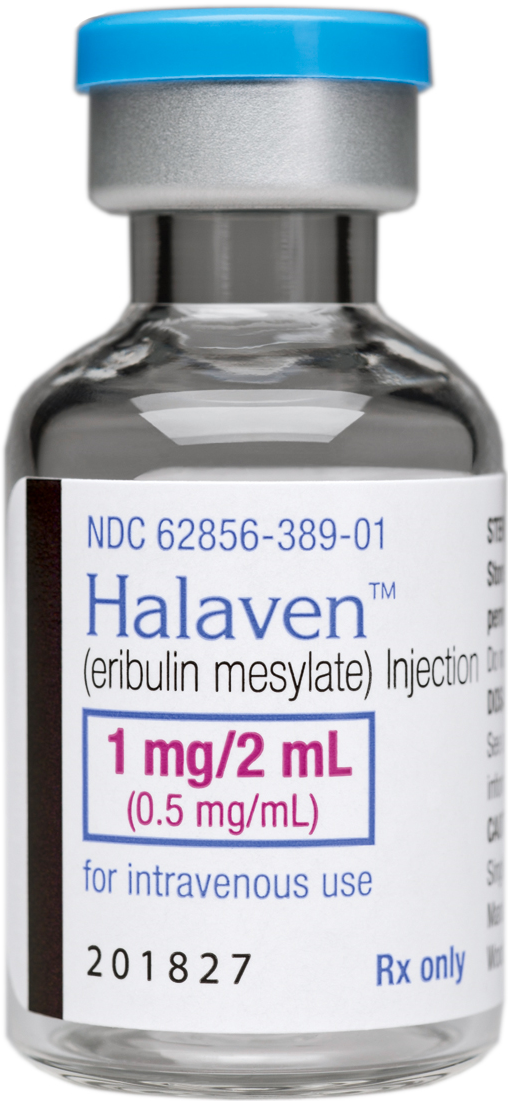Discovery to Commercialization
Beginning in the 1990s, researchers discovered that halichondrin B, derived from a substance found in the black sea sponge off the coast of Japan, had anticancer activity. Over the next several years, scientists then worked to synthesize the drug. Next, under a CRADA with NCI, Eisai Co. provided eribulin for NCI's preclinical development activities and to support NCI's Phase I clinical trials. Eisai ultimately took the product, Halaven®, to licensure. In 2010, Halaven® (eribulin mesylate), a cancer therapeutic, was approved by the FDA for the treatment of patients with metastatic breast cancer who have previously received at least two chemotherapeutic regimens for the treatment of metastatic disease. In January 2016, the FDA approved Halaven® for the treatment of inoperable liposarcoma for patients who received prior chemotherapy that contained an anthracycline drug.
NCI Contribution
NCI contributed in several ways in the discovery to commercialization of Halaven® including:
- Discovered halichondrin B's extended anticancer activity through NCI's 60 cell line cancer screen and identified the presumptive mechanism of action as a tubulin-targeted agent.
- Confirmed tubulin-based mechanism of action.
- Signed an agreement based on the NCI's Letter of Collection with New Zealand to collect sponges from which halichondrin B was extracted and purified by NZ scientists.
- Screened for anticancer activities of eribulin and other synthetic analogs provided by Eisai, and compared activities to halichondrin B in vitro and in vivo using early and late stage models.
- Performed pre-clinical development studies for eribulin in support of IND filing.
- Conducted first-in-human Phase I clinical trials of eribulin mesylate under a CRADA with Eisai.
Partner Contributions
Many partners provided significant contributions in the discovery to commercialization process of Halaven®, including:
- Professor Yoshito Kishi of Harvard University completed the first total synthesis of halichondrin B.
- Collaborative studies between Eisai and Harvard University revealed that halichondrin B's anticancer activity resides in its "right half" macrocyclic lactone moiety.
- Eisai and Harvard University synthesized halichondrin B right half analogs.
- Eisai performed medicinal chemistry and pharmaceutical optimization of halichondrin B right half analogs resulting in the discovery of eribulin.
- Eisai synthesized, purified and characterized the chemical and biological properties of eribulin, including in vitro and in vivo anticancer properties and mechanism of action.
- Under a CRADA with NCI, Eisai provided eribulin for NCI's preclinical development activities and to support NCI's Phase I clinical trials.
- Eisai developed large-scale synthetic approaches to support clinical evaluation, development, and product manufacture.
Results of Collaboration
- Product — anti-cancer drug eribulin mesylate (Halaven®).
- FDA approval in 2010 of eribulin mesylate for the treatment of patients with metastatic breast cancer who have previously received at least two chemotherapeutic regimens for the treatment of metastatic disease.
- FDA approval in January 2016 of eribulin mesylate for the treatment of some patients with liposarcoma. The approval is for patients whose cancers are advanced (metastatic) or cannot be removed by surgery (unresectable) and are no longer responding to anthracycline-based chemotherapy.
